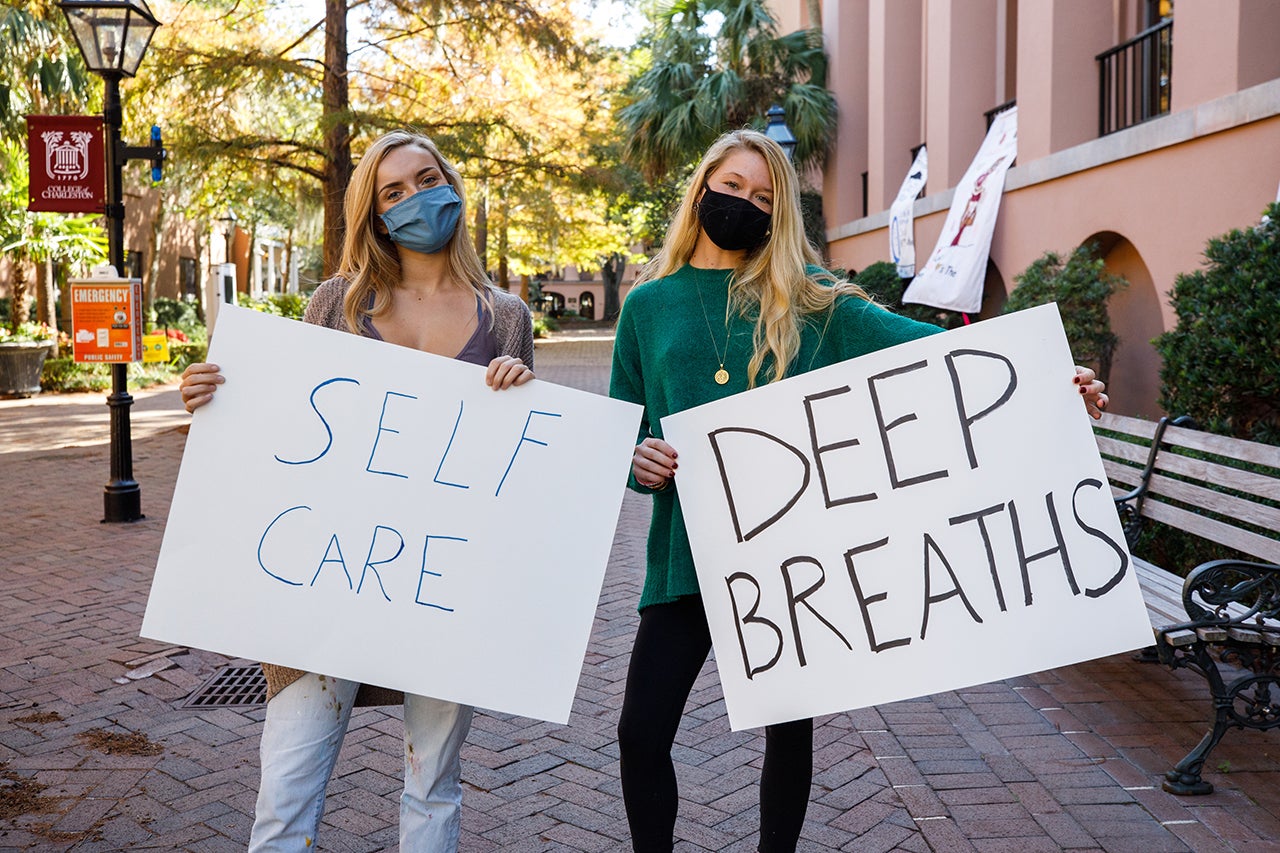Every year, World Mental Health Day aims to raise awareness of mental health issues around the world and mobilize efforts in support of mental health, providing an opportunity for all stakeholders working on mental health issues to talk about their work and what more needs to be done to make mental health care a reality for people worldwide. This year, World Mental Health Day is Oct. 10, 2021 – and it’s more important than ever.
“With the ongoing pandemic, there’s just so much to process, and our brains just aren’t used to – or even made for – the kind of sustained stress,” says Rachael McNamara, who heads up the College’s Office of Student Wellness and Wellbeing. “That’s why it’s so important to practice strategies that will help us cope with the negative and focus on the positive.”
Three strategies that McNamara points to are:
- Caring for oneself physically and mentally. Eating nutritiously, creating and maintaining a regular routine for sleep and incorporating physical activity into your daily routine are all proven ways to help care for your mental health – as is creating and maintaining positive and healthy relationships.
- Preparing for expected stressors. Develop a stress plan with known stress-management techniques to use in advance. For example, have some time-management strategies ready to implement when you’re entering times of especially stressful academic expectations (e.g., midterms) and create and maintain a network of people whom you can turn to for support when you need them most.
- Being able to recognize warning signs for ourselves and others in case what we are experiencing may need more intervention than our typical strategies. Be aware when negative feelings/emotions, thinking or behavior:
- become too intense or cause too much distress;
- last more than two weeks;
- interfere with daily life;
- lead to withdrawing from relationships or entering into unhealthy relationships;
- are accompanied by other problems like the misuse of alcohol or drugs, thoughts of self-harm or aggressive behaviors and/or making dangerous or risky decisions.
McNamara also encourages students to reach out and utilize the mental health services available to them on campus. For example:
- Students, faculty and staff have free access to TAO (Therapy Assistance Online), a digital platform for therapy assistance that provides tools to help users understand and change their thought patterns. Although TAO Connect can be used as a supplement to therapy, it can also be used as a self-guided resource with personalized educational modules, assessments, interactive AI tools, a mindfulness library and practice logs and journals. Students can explore whatever topics they need, including how to calm their worries, how to let go, how to improve their mood and stress resilience. To log on and get started, users just need their CofC email address.
- If students need someone to talk to and don’t know where to turn, Students 4 Support (S4S) is a group of highly trained CofC student volunteers who can provide crisis response techniques in a confidential, nonjudgmental environment. This free service is available via text (M–TH, 12–9 p.m.; text “4support” to 839863). S4S hopes to resume in-person services soon. Students can get more information about S4S services – including its check-in service during the first six weeks of the semester – on its website.
- The Counseling Center also provides clinical psychological care for students. More information is available on its website. To make an appointment, call 843.953.5640 or email [email protected]. Telehealth options are available.
Remember: Mental health is something we should take care of every day of the year, not just on World Mental Health Day. Be sure to check CougarConnect for different events from the Office of Student Wellness and Wellbeing, including the “How to Help a Distressed Friend” training workshop, starting Oct. 11, 2021.




